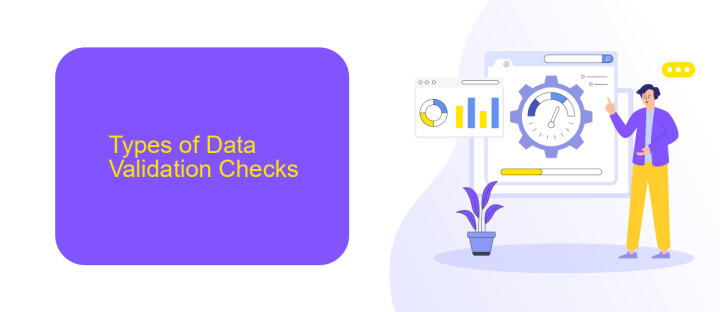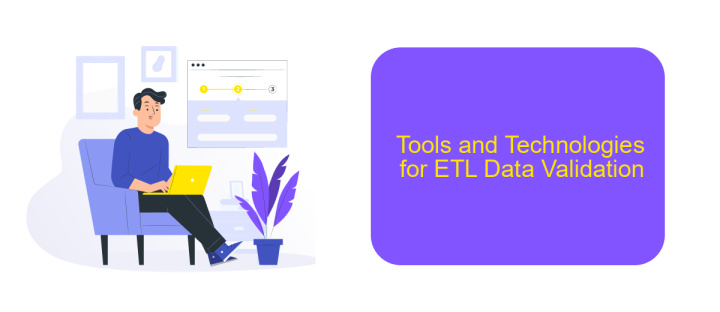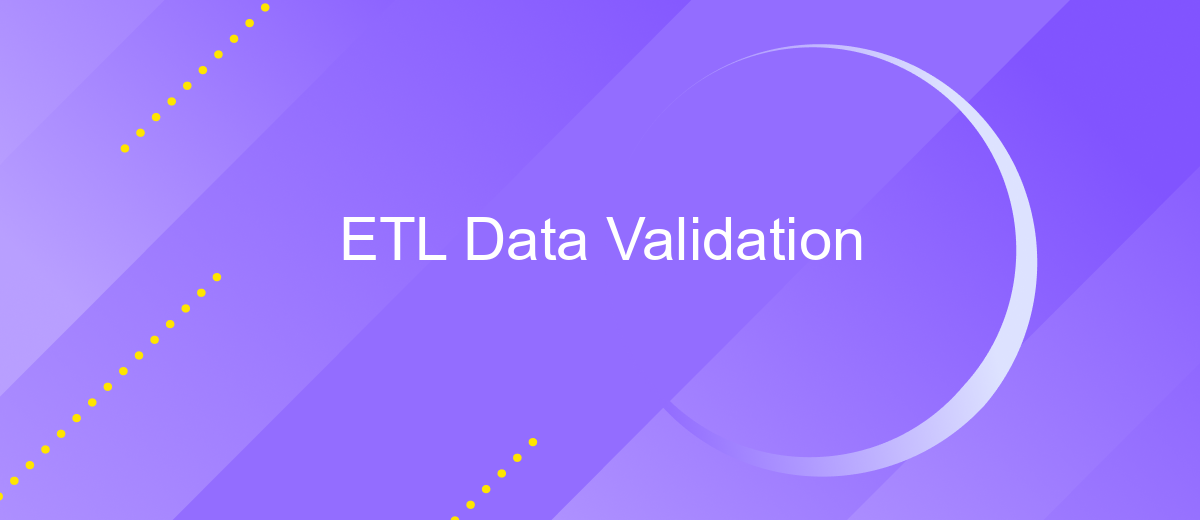ETL Data Validation
ETL (Extract, Transform, Load) data validation is a crucial process in ensuring the accuracy and integrity of data as it moves from source to destination. This article explores the key steps and best practices involved in validating data during the ETL process, highlighting the importance of maintaining data quality to support reliable business intelligence and decision-making.
Introduction to ETL Data Validation
ETL (Extract, Transform, Load) Data Validation is a critical process in data management that ensures the accuracy, completeness, and reliability of data as it moves from source systems to data warehouses or other storage solutions. Effective ETL data validation helps organizations maintain data integrity, enabling better decision-making and operational efficiency.
- Extract: Ensuring data is correctly pulled from source systems.
- Transform: Validating data transformations to meet business requirements.
- Load: Confirming data is accurately loaded into the target system.
Using services like ApiX-Drive can streamline the ETL data validation process by automating data integration tasks. ApiX-Drive offers robust tools for setting up and managing data flows between various systems, reducing the risk of errors and ensuring that data remains consistent and reliable throughout the ETL pipeline. This allows businesses to focus on analyzing data rather than troubleshooting integration issues.
Types of Data Validation Checks

Data validation checks are essential to ensure the accuracy and quality of data during the ETL process. One common type is range checks, which verify that data values fall within a specified range. For example, a date field should contain valid dates within a specific period, ensuring no future or past dates that are out of scope. Another type is format checks, which ensure data adheres to a predefined format, such as phone numbers, email addresses, or social security numbers, to maintain consistency and prevent errors.
Uniqueness checks are also crucial, particularly for primary keys or unique identifiers, to ensure no duplicate records exist. Referential integrity checks verify that relationships between tables are consistent, ensuring foreign keys match primary keys in related tables. Additionally, null checks ensure that fields that require data are not left empty, maintaining data completeness. Tools like ApiX-Drive can facilitate these checks by automating data integration and validation processes, reducing manual errors and saving time.
Data Validation Challenges and Best Practices

Data validation in ETL processes is crucial for ensuring data quality and consistency. However, it comes with its own set of challenges. Common issues include handling large volumes of data, dealing with inconsistent data formats, and ensuring real-time validation. These challenges can lead to delays and inaccuracies if not managed properly.
- Automate Validation: Utilize tools like ApiX-Drive to automate data validation, reducing manual effort and minimizing errors.
- Set Clear Rules: Define validation rules clearly to ensure consistency across different data sources.
- Real-Time Monitoring: Implement real-time monitoring to catch and address issues as they arise, ensuring data integrity.
- Scalability: Ensure your validation process can scale with growing data volumes to maintain performance and accuracy.
- Regular Audits: Conduct regular audits to verify the effectiveness of your validation processes and make necessary adjustments.
By following these best practices, organizations can overcome common data validation challenges in ETL processes. Leveraging services like ApiX-Drive for automation and integration can significantly enhance efficiency and accuracy, ensuring high-quality data for decision-making.
Tools and Technologies for ETL Data Validation

ETL data validation is a critical aspect of ensuring the accuracy and integrity of data as it moves through the ETL pipeline. Various tools and technologies can assist in automating and streamlining the validation process, making it more efficient and reliable.
Among the essential tools for ETL data validation are data profiling tools, data quality tools, and ETL testing frameworks. These tools help identify inconsistencies, missing values, and other anomalies that could compromise data quality. Additionally, integration services like ApiX-Drive can facilitate seamless data transfer and synchronization between different systems, ensuring that data remains consistent and up-to-date throughout the ETL process.
- Data Profiling Tools: These tools analyze data sources to understand their structure, content, and quality.
- Data Quality Tools: These tools help detect and correct data quality issues, such as duplicates and inaccuracies.
- ETL Testing Frameworks: These frameworks automate the testing of ETL processes to ensure data integrity and accuracy.
- Integration Services: ApiX-Drive can automate data integration and synchronization, enhancing data consistency across systems.
By leveraging these tools and technologies, organizations can significantly enhance the reliability of their ETL processes, ensuring that data is accurate, consistent, and ready for analysis. This not only improves decision-making but also increases overall operational efficiency.
Benefits of Implementing ETL Data Validation
Implementing ETL data validation offers numerous benefits that significantly enhance data quality and reliability. By ensuring that data is accurately extracted, transformed, and loaded, organizations can maintain data integrity and consistency across various systems. This process minimizes the risk of data corruption and errors, leading to more accurate analytics and reporting. Furthermore, validated data helps in making informed business decisions, as stakeholders can trust the data they are working with.
Another key benefit is the reduction in operational costs and time. Automated ETL data validation processes can identify and rectify data issues in real-time, preventing costly downstream errors and rework. Additionally, services like ApiX-Drive facilitate seamless integration and data validation across different platforms, making the setup and maintenance of ETL processes more efficient. By leveraging such tools, organizations can streamline their workflows, improve data governance, and ensure compliance with data standards and regulations.
FAQ
What is ETL Data Validation?
Why is ETL Data Validation important?
What are common techniques used in ETL Data Validation?
How can automation help in ETL Data Validation?
What are the challenges in ETL Data Validation?
Strive to take your business to the next level, achieve your goals faster and more efficiently? Apix-Drive is your reliable assistant for these tasks. An online service and application connector will help you automate key business processes and get rid of the routine. You and your employees will free up time for important core tasks. Try Apix-Drive features for free to see the effectiveness of the online connector for yourself.

